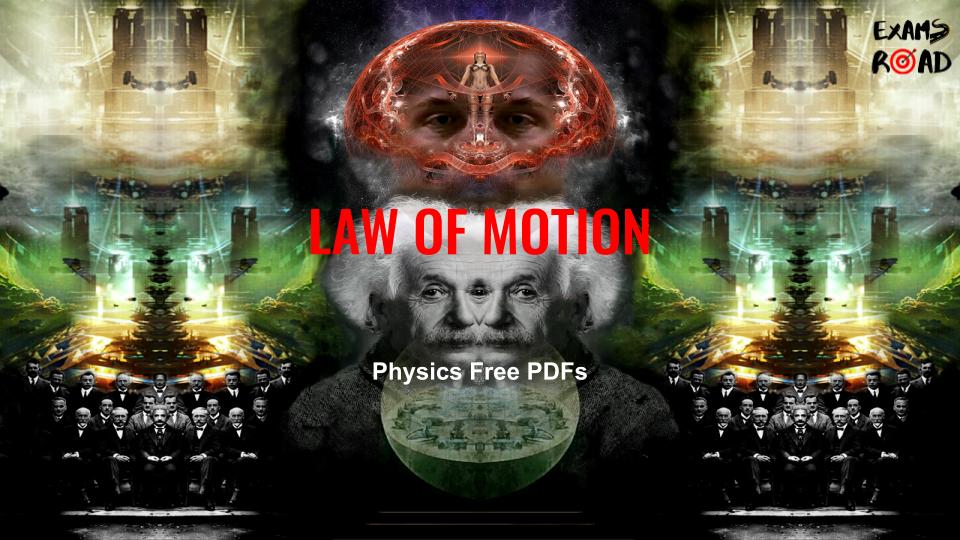JEE Maths Quiz on Sequences and Series
JEE Maths Quiz on Sequences and Series : In this article you will get to Online test for JEE Main, JEE Advanced, UPSEE, WBJEE and other engineering entrance examinations that will help the students in their preparation. These tests are free of cost and will useful in performance and inculcating knowledge. In this post we are providing you quiz on Sequences and Series
Quiz on Sequences and Series
Q1. Let x + y + z = 15 if 9, x, y, z, a are in A.P.; while [1 / x] + [1 / y] + [1 / z] = 5 / 3 if 9, x, y, z, a are in H.P., then what will be the value of a? a) 1 Solution: x + y + z = 15, if x = (z−3)−1 = z3 are in A.P. Sum =9+15+a=52(9+a) ⇒ 24 + a = 5 / 2 (9 + a) ⇒ 48 + 2a = 45 + 5a ⇒ 3a = 3 ⇒ a = 1 ..(i) and [1 / x] + [1 / y] + [1 / z] = 5 / 3, if 9, x, y, z, a are in H.P. Sum = 1 / 9 + 5 / 3 + 1 / a = 5 / 2 [1 / 9 + 1 / a] ⇒ a = 1
a) 1
b) 2
c) 4
d) 9
Q2. If x, 1, z are in A.P. and x, 2, z are in G.P., then x, 4, z will be in __________. b) H.P. Solution: x, 1, z are in A.P., then 2 = x + z ……(i) and 4 = xz ……(ii) Divide (ii) by (i), we get [x z] / [x + z] = 4 / 2 or 2xz / [x + z] = 4 Hence, x, 4, z will be in H.P.
a) G.P.
b) H.P.
c) Both
d) None
Q3. The interior angles of a polygon are in A.P. If the smallest angle be 120o and the common difference be 5o, then the number of sides is __________. a) 9 Solution: Let the number of sides of the polygon be n. Then the sum of interior angles of the polygon = (2n − 4) [π / 2] = (n − 2)π Since the angles are in A.P. and a = 120o, d = 5, therefore [n / 2] * [2 * 120 + (n − 1)5] = (n − 2) * 180 n2 − 25n + 144 = 0 (n − 9) (n − 16) = 0 n = 9, 16 But n = 16 gives T16 = a + 15d = 120o + 15.5o = 195o, which is impossible as interior angle cannot be greater than 180o. Hence, n = 9.
a) 9
b) 25
c) 16
d) 90
Q4. The sums of n terms of two arithmetic series are in the ratio [2n + 3] : [6n + 5], then the ratio of their 13th terms is _______. a) 55 / 155 Solution: We have Sn1 / Sn2 = [2n + 3] / [6n + 5] {[n / 2] * [2a1 + (n − 1)d1]} / {[n / 2] * [2a2 + (n − 1)d2]} = [2n + 3] / [6n + 5] {2 * [a1 + ([n − 1] / 2)d1]} / {2 * [a2 + ([n − 1] / 2)d2]} = [2n + 3] / [6n + 5] {a1 + ([n − 1] / 2)d1} / {a2+([n − 1] / 2)d2} = [2n + 3] / [6n + 5] Put n = 25 then, [a1 + 12d1] / [a2 + 12d2]= [2 (25) + 3] / [6 (25) + 3] T131 / T132 = 53 / 155
a) 55 / 155
b) 27 / 112
c) 53 / 147
d) 57 / 143
Q5. If the pth, qth and rth term of an arithmetic sequence are a, b and c respectively, then the value of [a (q − r) + b (r − p) + c (p − q)] = ________. a) 0 Solution: Suppose that the first term and the common difference of A.P.s are A and D respectively. Now, pth term = A + (p − 1)D = a …… (i) qth term = A + (q − 1)D = b …… (ii) and rth term = A + (r − 1)D = c .….. (iii) So, [a (q − r) + b (r − p) + c (p − q)] = a * {[b − c] / [D]} + b * {[c − a] / [D]} + c * {[a − b] / [D]} = [1 / D] (ab − ac + bc − ab + ca −bc) = 0
a) 0
b) 1
c) 2
d) 3
Q6. If log3 2, log3 (2x − 5) and log3 (2x − [7 / 2]) are in A.P., then x is equal to ______. b) 3 Solution: log3 2, log3 (2x − 5) and log3 (2x − [7 / 2]) are in A.P. ⇒ 2 log3 (2x − 5) = log3 [(2) (2x − 72)] ⇒ (2x − 5)2 = 2x+1 − 7 ⇒ [22x − 12] * [2x − 32] = 0 ⇒ x = 2, 3 But x = 2 does not hold, hence x = 3.
a) 2
b) 3
c) 5
d) 7
Q7. If mth terms of the series 63 + 65 + 67 + 69 + . . . . . . . . . and 3 + 10 + 17 + 24 + . . . . . . be equal, then what is the value of m? c) 13 Solution: Given series 63 + 65 + 67 + 69 + . . . . . . . . . (i) and 3 + 10 + 17 + 24 + . . . . . . (ii) Now from (i), mth term = (2m + 61) and mth term of (ii) series = (7m − 4) Under condition, ⇒ 7m − 4 = 2m + 61 ⇒ 5m = 65 ⇒ m = 13
a) 17
b) 15
c) 13
d) 11
Q8. The sum of integers from 1 to 100 that are divisible by 2 or 5 is _________. a) 3050 Solution: The sum of integers from 1 to 100 that are divisible by 2 or 5 = sum of series divisible by 2 + sum of series divisible by 5 – sum of series divisible by 2 and 5. = (2 + 4 + 6 + . . . . . . + 100) + (5 + 10 + 15 . . . . . . . + 100) − (10 + 20 + 30 + . . . . . . . . + 100) = [50 / 2] {2 * 2 + (50 − 1) 2} + [20 / 2] {2 * 5 + (20 − 1)5} − [10 / 2] {10 * 2 + (10 − 1)10} = 2550 + 1050 − 550 = 3050
a) 3050
b) 3020
c) 3200
d) 3030
Q9. In the expansion of loge {1 / [1 − x − x2 + x3]}, the coefficient of x is __________. b) 1 Solution: loge {1 / [1 − x − x2 + x3]} = loge {1 / [(1 − x) − x2 (1 − x)]} = loge {1 / [(1 − x) (1 − x2)]} = loge {[1 / (1 − x)2 (1 + x)]} = loge {(1 − x)−2 (1 + x)−1} ……… (i) = loge (1 − x)−2 + loge (1 + x)−1 = −2 loge (1 − x) − loge (1 + x) = −2 [(−x) − (x2 / 2) − (x3 / 3) − (x4 / 4) − . . . . . . . ∞] − [x + (x2 / 2) + (x3 / 3) + (x4 / 4) − . . . . ∞], Hence, coefficient of x = 2 − 1 = 1
a) 2
b) 1
c) -2
d) -1
Q10. The sum of the series [4 / 1!] + [11 / 2!] + [22 / 3!] + [37 / 4!] + [56 / 5!] + . . . is _____. d) 6e − 1 Solution: S = 4 + 11 + 22 + 37 + . . . . + Tn−1 + Tn or S = 4 + 11 + 22 + 37 + . . + Tn−1 + Tn Therefore, on subtracting we get 0 = 4 + [7 + 11 + 15 + 19 + . . . . + (Tn − Tn−1)] − Tn 0 = 4 + [n − 1] / [2] * [14 + (n − 2)4] − Tn So, Tn = 2n2 + n + 1 Thus, nth term of the given series is Tn = [2n2 + n + 1] / [(n)!] = [2n] / [(n − 1)!] + [1] / [(n − 1)!] + [1]/ [n!] = [2 (n − 1 + 1)] / [(n − 1)!] + 1 / [(n − 1)!] + [1] / [n!] = 2 / [(n − 2)!] + 3 / [(n − 1)!] + 1 / n! Sum = ∑n=1∞ Tn = 2e + 3e + e − 1 = 6e − 1
a) – 6e − 1
b) 6e − 6
c) 6e + 1
d) 6e − 1
Subject-wise Tricks Tips & Question with Solution PDFs
| S.NO | Subject Name | Topic-wise PDFs Download Link |
| 1. | Chemistry Notes PDF | Click Here to Download Now |
| 2. | Maths Notes PDF | Click Here to Download Now |
| 3. | Physics Notes PDF | Click Here to Download Now |
| 4. | Biology Notes PDF | Click Here to Download Now |
|
|
|
| https://www.facebook.com/ExamsRoadOfficial | |
| Telegram | https://telegram.me/ExamsRoad |
| https://twitter.com/ExamsRoad | |
| https://www.instagram.com/ExamsRoad/ | |
| YouTube | Click Here To Subscribe Now |
Thank You.
By TEAM ExamsRoad.com
















